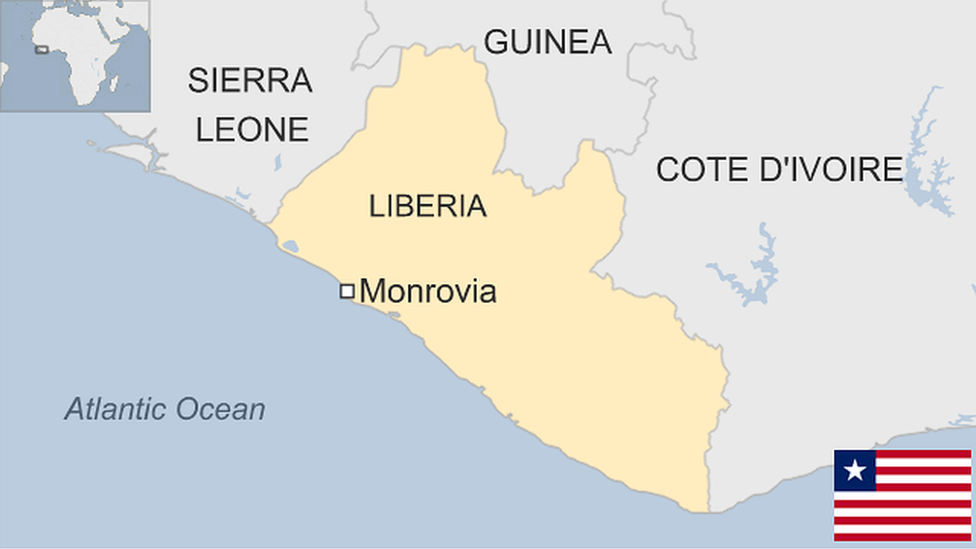George Weah vows to change Liberia's citizenship laws
- Published
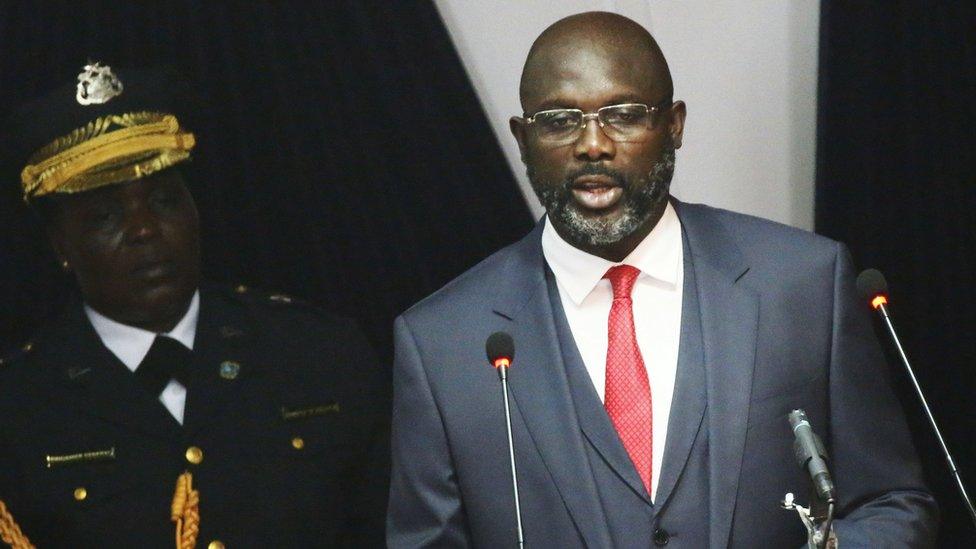
Liberia's new president has pledged to take a pay cut
Liberia's President George Weah has called for the removal of a "racist" clause in the constitution which restricts citizenship to black people.
The clause was "unnecessary, racist and inappropriate", the ex-football star said in his first State of the Nation address since being elected president.
He also pledged to scrap the law that prohibits foreigners owning land.
Liberia was founded by freed US slaves in 1847 as "a refuge and a haven for freed men of colour".
Its constitution defines black people in the language of the time, as "persons who are Negroes or of Negro descent".
Other communities, like the estimated 4,000 Lebanese people who have lived in Liberia for generations, are barred from citizenship and, by extension, land ownership.
The restrictions introduced at the time were no longer necessary, Mr Weah said, adding that he also wanted a ban on dual citizenship to be abolished.
"It contradicts the very definition of Liberia, which is derived from the Latin word 'liber', meaning 'liberty'," he said.
Some see the proposed change as long overdue, says the BBC's Jonathan Paye-Layleh in the capital Monrovia.
But others, he adds, do not see it as a priority and want to see critical intervention on bringing the cost of living down.
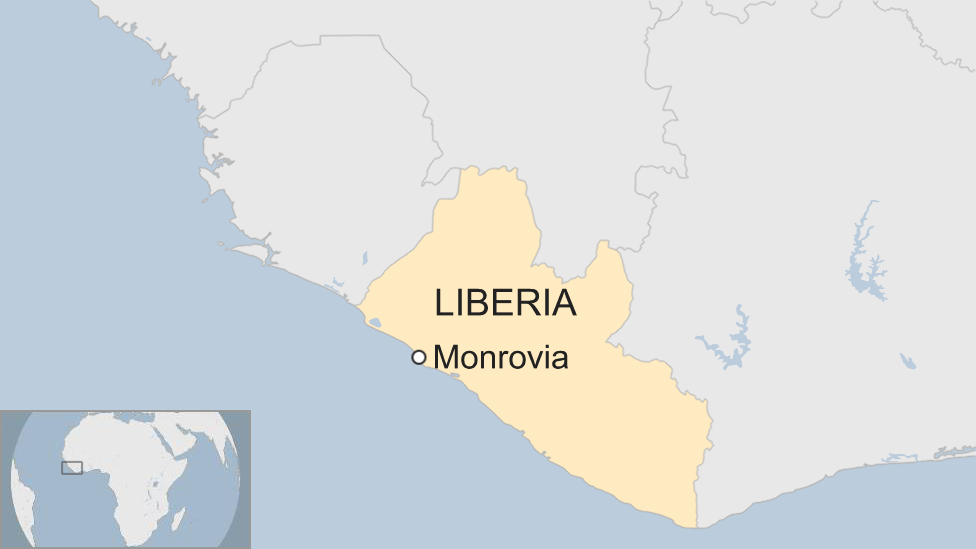
Mr Weah, the 1995 Fifa World Player of the Year, is the first former sports star to be elected president.
He won elections in December by a landslide, defeating then Vice-President Joseph Boakai.
The former AC Milan and Chelsea player succeeded Ellen Johnson Sirleaf, Africa's first elected female president who stepped down after two terms.
In his address in parliament on Monday, Mr Weah also announced that he would be taking a pay cut of 25% because the government and the economy were "broke".
"Our currency is in free fall; inflation is rising, unemployment is at an unprecedented high and our foreign reserves are at an all-time low," he said.
He asked MPs to "follow my lead" and agree to a pay cut.
"Let us all remember that we were elected to serve the Liberian people and not to be masters of them," Mr Weah said in an address that was interrupted by wild applause.

The poorest will love Weah even more
Analysis by Tamasin Ford, BBC Africa
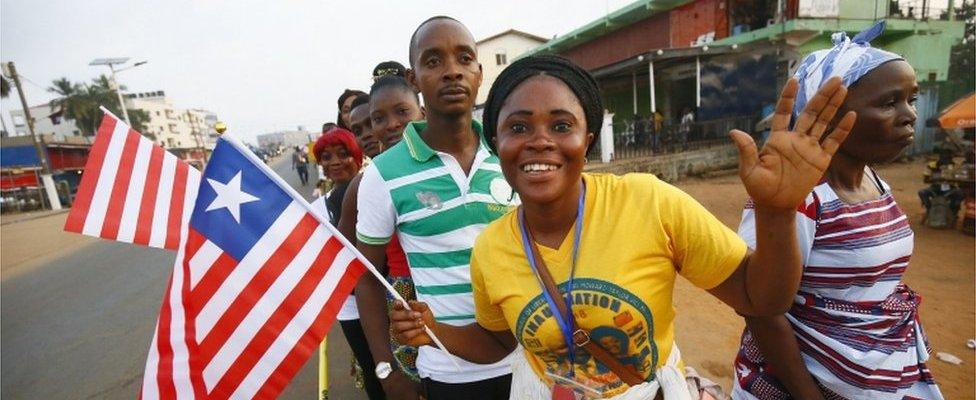
He has been in power just over a week and already George Weah is making the headlines.
Overturning constitutional rules to slash his salary and benefits by a quarter is something his supporters, who are largely the poorest of the poor, will love him even more for.
He has also pledged to change Liberia's land ownership rules, currently restricted to citizens only - claiming no foreign investor can work in a country where they cannot buy land.
He has put education at the top of his agenda, saying his government will pay all university exam fees for every student, though it is unclear how he will fund the plan after describing the government as "broke".

Members of the House of Representatives and Senate earn up to $15,000 (£10,600) a month, along with other benefits.
The vast majority of the population of about 4.6 million live below the poverty line.
Liberia is still recovering from a civil war which officially ended in 2005.
It was also badly affected by the Ebola epidemic, which hit the region in 2014 and 2015.

Seven things about George Weah:

Born 1 October, 1966, grew up in a slum in Liberia's capital
Signed by Arsene Wenger to Monaco from Cameroonian club Tonnerre Yaoundé
Made Monaco debut in 1987, went on to play for AC Milan, Paris Saint-Germain and Chelsea
Only African to win Fifa World Player of the Year
First ran for president in 2005, losing to Ellen Johnson Sirleaf
Graduated with a business degree from a US university after being accused of lacking education
Elected president in December 2017

- Published22 January 2018
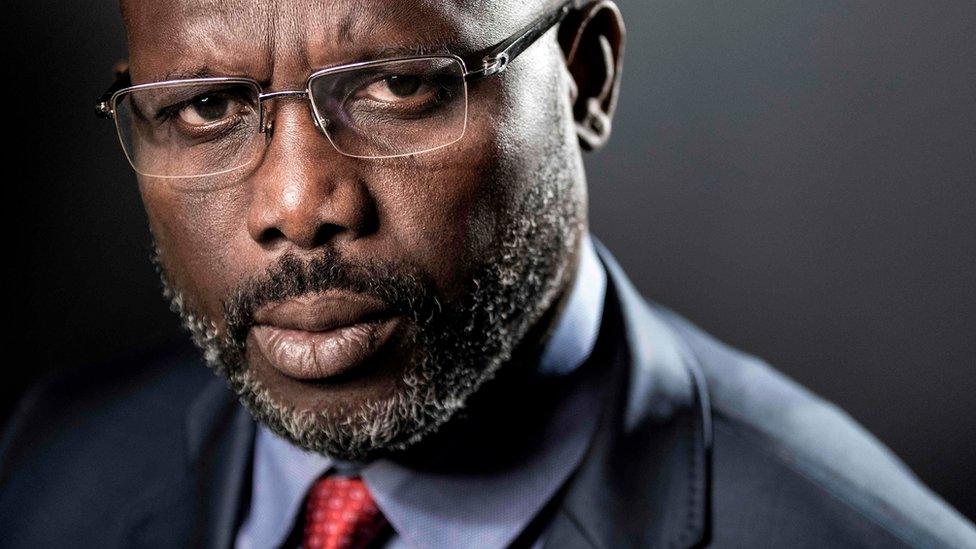
- Published6 October 2017
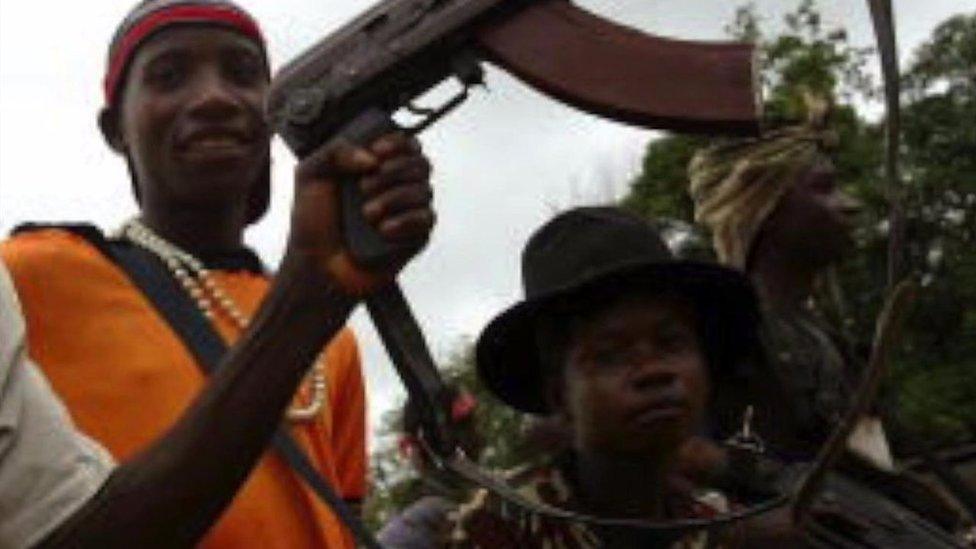
- Published6 October 2017

- Published13 February 2024
